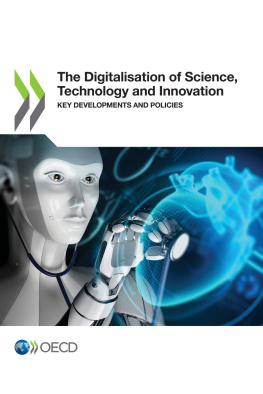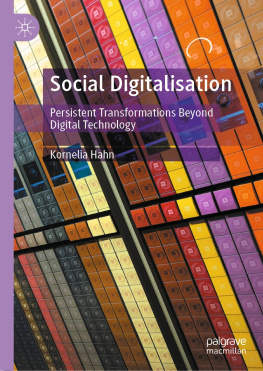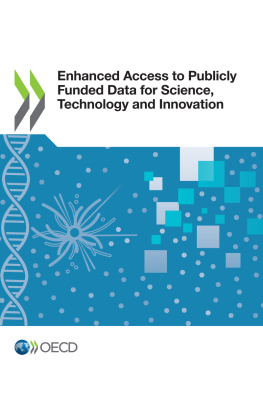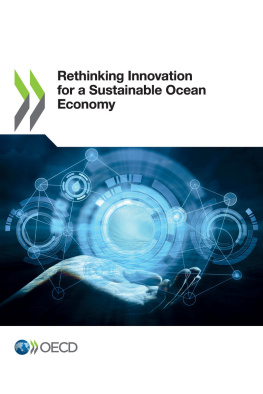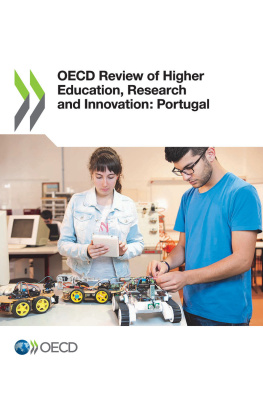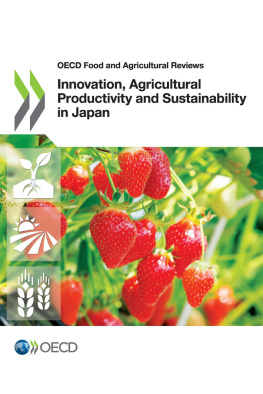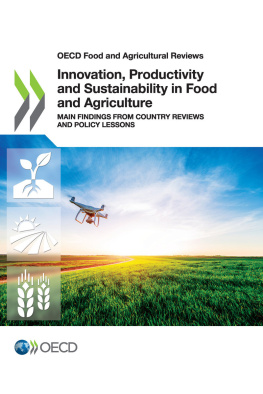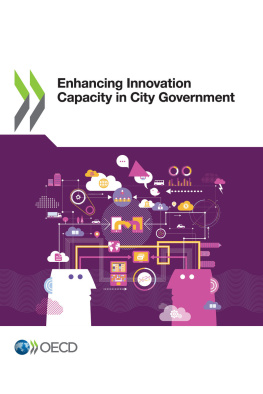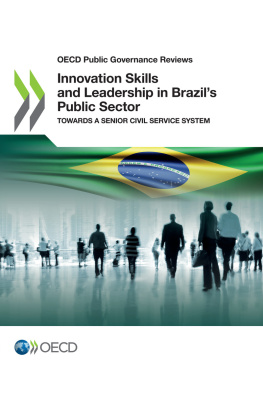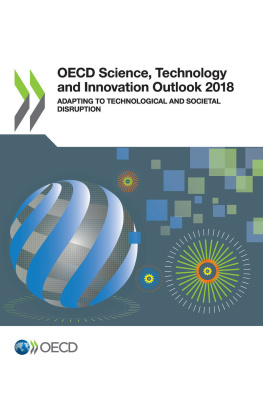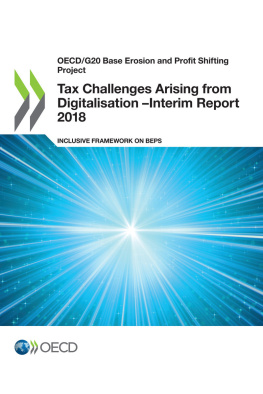OECD - The Digitalisation of Science, Technology and Innovation
Here you can read online OECD - The Digitalisation of Science, Technology and Innovation full text of the book (entire story) in english for free. Download pdf and epub, get meaning, cover and reviews about this ebook. year: 2020, publisher: OECD Publishing, genre: Politics. Description of the work, (preface) as well as reviews are available. Best literature library LitArk.com created for fans of good reading and offers a wide selection of genres:
Romance novel
Science fiction
Adventure
Detective
Science
History
Home and family
Prose
Art
Politics
Computer
Non-fiction
Religion
Business
Children
Humor
Choose a favorite category and find really read worthwhile books. Enjoy immersion in the world of imagination, feel the emotions of the characters or learn something new for yourself, make an fascinating discovery.
The Digitalisation of Science, Technology and Innovation: summary, description and annotation
We offer to read an annotation, description, summary or preface (depends on what the author of the book "The Digitalisation of Science, Technology and Innovation" wrote himself). If you haven't found the necessary information about the book — write in the comments, we will try to find it.
OECD: author's other books
Who wrote The Digitalisation of Science, Technology and Innovation? Find out the surname, the name of the author of the book and a list of all author's works by series.
The Digitalisation of Science, Technology and Innovation — read online for free the complete book (whole text) full work
Below is the text of the book, divided by pages. System saving the place of the last page read, allows you to conveniently read the book "The Digitalisation of Science, Technology and Innovation" online for free, without having to search again every time where you left off. Put a bookmark, and you can go to the page where you finished reading at any time.
Font size:
Interval:
Bookmark:
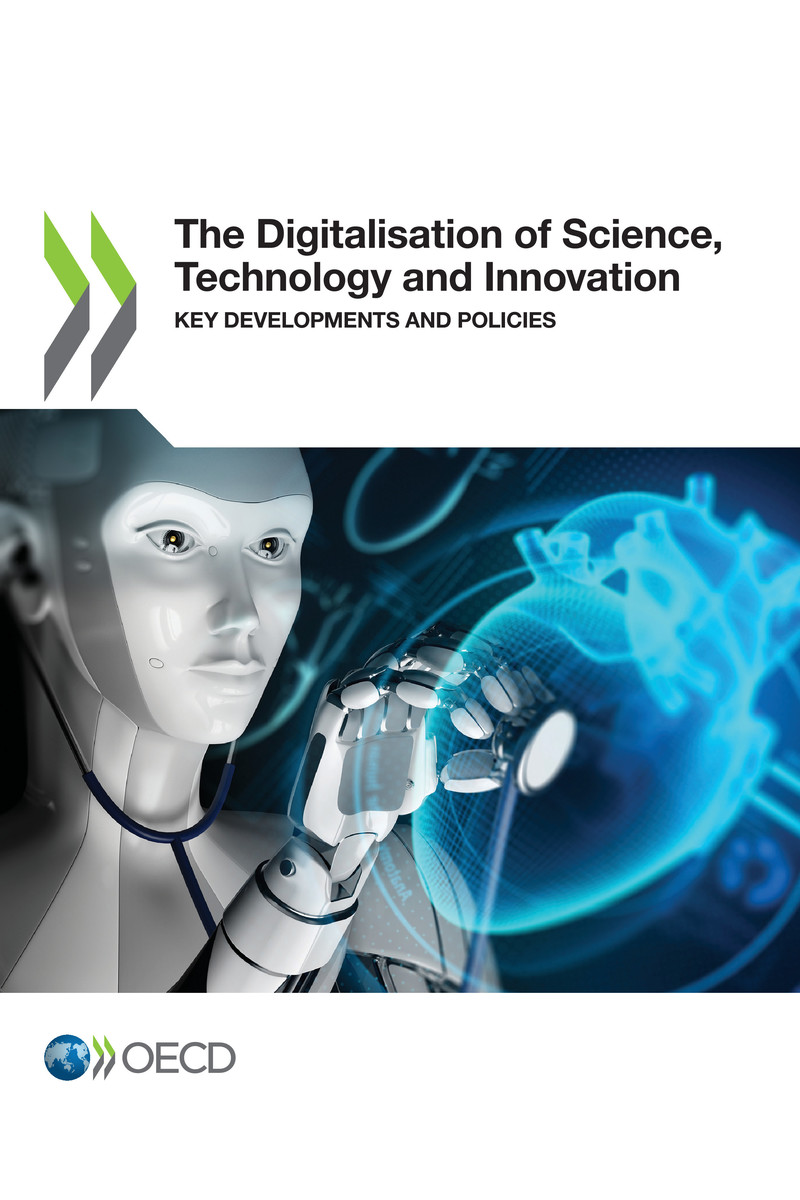
OECD (2020), The Digitalisation of Science, Technology and Innovation: Key Developments and Policies , OECD Publishing, Paris, https://doi.org/10.1787/b9e4a2c0-en .
The OECDs Committee for Scientific and Technological Policy (CSTP) brings together representatives from OECD countries, and a number of partner economies, to examine major aspects of public policy relevant to science, technology and innovation (STI). By guiding the OECDs empirical research and data gathering, and promoting peer-based learning, the Committee works to improve understanding of these policies and, ultimately, to advance policymaking itself.
The digital revolution and its implications have been central to the OECDs, and CSTPs, work for many years. Recently during 2017 and 2018 the OECDs Going Digital project comprehensively examined digital technologys economic and social impacts. The resulting report, Going Digital: Shaping Policies, Improving Lives , provides a roadmap for policy making in the digital age.
In 2015, in their joint declaration, ministers from OECD countries and partner economies, at the OECD Ministerial Meeting in Daejeon (Korea), recognised that digital technologies are revolutionising STI. Ministers highlighted that the rapid development of digital technologies is changing the way scientists work, collaborate and publish; increasing the importance of access to scientific data and publications; opening new ways for the public to engage and participate in science and innovation; facilitating research co-operation between businesses and the public sector; contributing to the transformation of how innovation occurs; and, driving the next production revolution. The ministers asked the OECD to monitor this ongoing transformation.
This publication examines digitalisations effects on STI and the associated consequences for policy. It draws mainly on work performed under the aegis of CSTP during 2017 and 2018. Some of the topics addressed are longstanding themes in CSTPs work from access to publicly funded research data, to the measurement of digital science and innovation. Other topics are newer and emerging, from the role of artificial intelligence in production, to how digital technology could help utilise the collective intelligence of the scientific community, to recent advances in the digitalisation of biotechnology.
Certain aspects of the digital revolution are still relatively new, even if their effects are already profound. It is evident that, owing to the general-purpose character of digital technology, its future development will also have far-reaching consequences. As digital technology and its many ramifications evolve, CSTP will continue to serve as a unique international and inter-governmental focal point for policy analysis and guidance in the field of STI.
This book was declassified by CSTP on 12 August 2019 by written procedure and prepared for publication by the OECD Secretariat.
Alistair Nolan edited this publication. Alistair Nolan also wrote Chapter 1 (An overview of key developments and policies) as well as Chapter 5 (Artificial intelligence, digital technology and advanced production). Mr. Nolan, and all the authors of this publication, work in the OECDs Directorate for Science, Technology and Innovation.
Fernando Galindo-Rueda wrote Chapter 2 (How are science, technology and innovation going digital? The statistical evidence).
Carthage Smith wrote Chapter 3 (Digital technology, the changing practice of science and implications for policy).
Chapter 4 (Digital innovation: Cross-sectoral examples and policy implications) was written by Dominique Guellec, Caroline Paunov and Sandra Planes-Satorra.
James Philp wrote Chapter 6 (Digitalisation in the bioeconomy: Convergence for the bio-based industries).
Chapter 7 (The digitalisation of science and innovation policy), was written by Michael Keenan, Dmitry Plekhanov, Fernando Galindo-Rueda and Daniel Ker.
Dominique Guellec, Head of the OECDs Division for Science and Technology Policy, provided detailed comments throughout. Valuable comments were provided by Andy Wyckoff and Dirk Pilat, Director and Deputy-Director, respectively, of the OECDs Directorate for Science, Technology and Innovation.
Mark Foss provided editorial support. Serve Blandine gave statistical assistance. Florence Hourtouat and Beatrice Jeffries formatted and checked the text of successive drafts. And Angela Gosmann oversaw all aspects of the publication process. Their contributions are gratefully acknowledged.
Thanks are likewise due to the delegates to the OECDs Committee for Scientific and Technological Policy who provided comments on chapter drafts.
Thanks are similarly due Professor Morten Irgens, of Oslo Metropolitan University (OsloMet), who arranged sponsorship for, and gave intellectual support to, a joint workshop between OsloMet and the OECD in Oslo on 1 and 2 November 2018. The workshop, titled Digital Technology for Science and Innovation Emerging Topics for Policy and Assessment, explored emerging issues at the intersection between digital technologies and policies for science and innovation. Many of the ideas examined at that event appear in this publication.
Font size:
Interval:
Bookmark:
Similar books «The Digitalisation of Science, Technology and Innovation»
Look at similar books to The Digitalisation of Science, Technology and Innovation. We have selected literature similar in name and meaning in the hope of providing readers with more options to find new, interesting, not yet read works.
Discussion, reviews of the book The Digitalisation of Science, Technology and Innovation and just readers' own opinions. Leave your comments, write what you think about the work, its meaning or the main characters. Specify what exactly you liked and what you didn't like, and why you think so.

